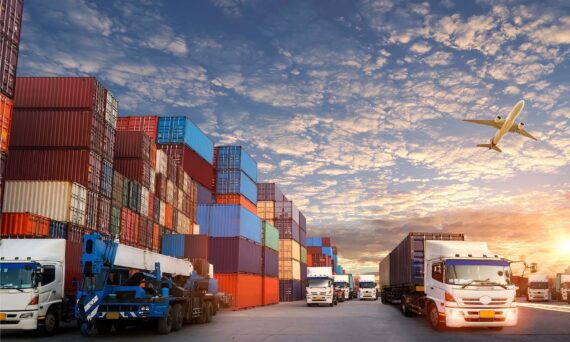The modern business landscape is undergoing a significant transformation, driven by the increasing prevalence of remote work and a growing emphasis on sustainability. As companies navigate this evolving environment, they are rethinking their global supply chains to integrate sustainable practices and adapt to the remote work paradigm.
This article explores how remote work is influencing global business strategies and how businesses are embedding sustainability into their supply chains.

The Rise of Remote Work
Remote work has moved from being a niche practice to a mainstream business model, accelerated by technological advancements and the global pandemic. This shift has brought about profound changes in how businesses operate, impacting various aspects of their supply chains.
The traditional office-centric work model is being replaced by a more flexible, location-independent approach. This change is not only altering workplace dynamics but also influencing how companies manage their resources, logistics, and overall supply chain strategies.
Remote work has led to a reduced need for large office spaces, which in turn decreases energy consumption and lowers the carbon footprint of businesses. This reduction in physical infrastructure is pushing companies to rethink their resource allocation and invest in digital tools that support remote collaboration and productivity.
Additionally, remote work has expanded the talent pool, allowing companies to hire skilled professionals from different geographical locations, which can lead to more diverse and innovative solutions for supply chain management.
Integrating Sustainability into Supply Chains
Sustainability has become a critical priority for businesses worldwide. As consumers and stakeholders increasingly demand environmentally responsible practices, companies are under pressure to integrate sustainability into their supply chains. This integration involves various strategies, from sourcing raw materials responsibly to optimizing logistics and reducing waste.
One of the key aspects of sustainable supply chain management is the adoption of eco-friendly materials and production processes. Companies are sourcing raw materials from sustainable sources, ensuring that they adhere to environmental standards and certifications. This practice not only reduces the environmental impact but also enhances the brand’s reputation among environmentally conscious consumers.
Another important strategy is optimizing logistics to minimize carbon emissions. Businesses are leveraging advanced technologies such as AI and machine learning to streamline their supply chain operations, improve efficiency, and reduce the environmental footprint. For instance, predictive analytics can help companies forecast demand more accurately, reducing the need for excess inventory and minimizing waste.
Companies are increasingly adopting circular economy principles, where products are designed for longevity, reuse, and recycling. This approach not only reduces waste but also creates new business opportunities and revenue streams. By rethinking product design and lifecycle management, businesses can significantly lower their environmental impact and contribute to a more sustainable future.
The Synergy Between Remote Work and Sustainability
The convergence of remote work and sustainability initiatives is creating new opportunities for businesses to enhance their global supply chains. Remote work reduces the need for business travel, which significantly lowers carbon emissions. Virtual meetings and collaborations are becoming the norm, reducing the reliance on transportation and decreasing the overall environmental impact.
Additionally, remote work encourages businesses to invest in digital infrastructure and cloud-based solutions. These technologies not only support remote collaboration but also enable better tracking and management of supply chain activities. With enhanced visibility and transparency, companies can monitor their sustainability performance more effectively and make data-driven decisions to improve their environmental impact.
In addition to the previous paragraphs, remote work allows companies to decentralize their operations, reducing the need for centralized production facilities. This decentralization can lead to shorter supply chains, which are more efficient and less resource-intensive. By producing goods closer to the end consumer, businesses can reduce transportation costs, lower emissions, and respond more swiftly to market demands.
Final Thoughts
The shift towards remote work and the integration of sustainability into global supply chains are reshaping the business landscape. Companies that embrace these changes are not only meeting the demands of modern consumers and stakeholders but also positioning themselves for long-term success.
By rethinking their supply chain strategies, investing in sustainable practices, and leveraging the advantages of remote work, businesses can achieve greater efficiency, resilience, and environmental stewardship. The future of global supply chains lies in the seamless integration of sustainability and remote work, driving innovation and fostering a more sustainable world.
